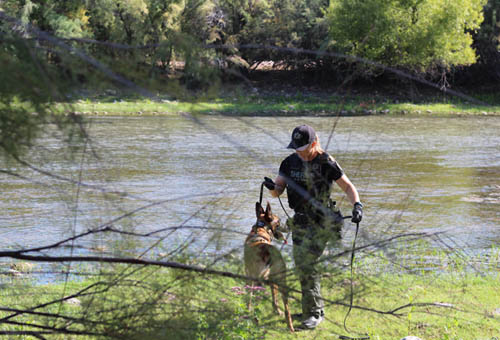


SORN programs typically experience significant challenges related to staff turnover, inadequate resources, court challenges, and lack of skill development opportunities. Whether you are new to this area of work or are experienced, join us for an intensive two-day skill development training designed specifically for SORN personnel. During the training, we will cover an introduction and overview of SORN laws, registration of offenders, community notification to the public, and enforcement and compliance issues. Advanced skill development such as registrant monitoring and compliance, and community notification meetings will also be covered. Participate in this interactive training which includes educational information, ready-to-use resources, case studies, interactive discussion, and opportunities to apply learned skills.

Seconds count when a child is missing. Gain the critical skills needed to construct and manage effective search and canvass operations to recover the child. Recognize crucial cell phone and technology-related evidence which can help locate the child and track the abductor. Explore relevant legal issues associated with criminal cases against those who abduct and harm children. Participate in hands-on exercises designed to test your knowledge and application of the material and prepare you for your next missing child case.

Test your community’s response in conducting an initial investigation, search and canvass activities for a missing or abducted child scenario occurring on tribal lands. Employ strategies and responses in mitigating and resolving the emergency. Participate in a multi-disciplinary, multi-jurisdictional tabletop exercise, to build cohesiveness with tribal, state, local and federal partners when responding to an emergency.

Gather up-to-date information for the investigation and prosecution of all types of child abuse cases utilizing a multidisciplinary team (MDT) approach. Learn about medical evidence, interviewing child victims/witnesses and adult suspects/witnesses, along with legal issues involved in the investigation and prosecution of child physical and sexual abuse cases. Discuss trends in offenders’ use of technology, the use of child sexual abuse material (CSAM), and sextortion. Learn law enforcement investigative techniques that capitalize on new technology.

Child sex trafficking (CST) is like no other crime. Victimization may happen hundreds of times and can be difficult to identify due to the victims being missing children coupled with the trafficker’s hold on victims. Dissect the crime of CST, its complex nature, and discover how to investigate this crime fully. Develop trauma-informed approaches to ensure your victim interview does not retraumatize and you gain critical information to identify corroborative evidence. Examine the trafficker’s profile and motivation, how they impact your suspect interview, and proven suspect interview strategies. Recognize common evidence available, legal hurdles, and common defenses of traffickers.

The opioid crisis and the flood of other drugs has reached epidemic proportion in many of our communities. Join us to learn more about this national challenge and other emerging drug trends such as fentanyl, heroin, cocaine, methamphetamines, synthetic cannabinoids, and other chemicals. Explore the issues associated with the legalization of marijuana in many states and vaping, butane hash oil, and cannabis edibles. Gain an understanding of the stages of use, addiction, withdrawal symptoms, and the health and life-threatening dangers posed from the use of drugs. Discuss common delivery systems and observe examples of emerging drugs in various forms. Learn how to recognize the signs and symptoms of drug usage, as well as how Naloxone/Narcan works in cases of opioid overdoses.

Learn how to objectively investigate child death cases, particularly when the cause and manner of death is unexplained. Examine investigative mindset from initial call-out to case resolution and learn how to gain an understanding of what happens with a victim-centered approach, exploring the emotional trauma of the non-offending caregiver. Discuss possible causes of death and best practices and tips including various investigative steps for evidence collection, witness and suspect interviews. This basic course offers law enforcement, CPS, and other child death investigators up-to-date practices for the investigation of child deaths.

In the initial response to endangered missing or child abduction incidents, accurate and timely situational assessments and immediate resource deployment are critical. During this training, first responders will gain knowledge of the investigative activities that occur during an endangered missing or child abduction investigation, and how their actions influence the short- and long-term response of law enforcement. Learn the impact the missing and or abducted child incident has on the family and how this can impact your response. Examine the critical and necessary first steps for first responders, initial supervisory, and investigative response. Gain best practices strategies for search and canvass implementation.

Explore strategies for conducting comprehensive sexual assault investigations. Learn how to support victims, gather and maintain evidence, manage crime scenes, conduct effective interviews and interrogations, utilize investigative resources (SANE nurses and support services), and prepare cases for prosecution.

Gain an introduction into the psychology, or mindset, of those that commit sexually motivated crimes. Learn about sex offender typologies and patterns of behavior. Explore the relationship between paraphilia such as exhibitionism, voyeurism, and fetishism and criminal acts. Review and dissect real case examples to gain insight into offender modus operandi. Knowledge obtained can be applied during interview and interrogation to help resolve sexually motivated cases.
